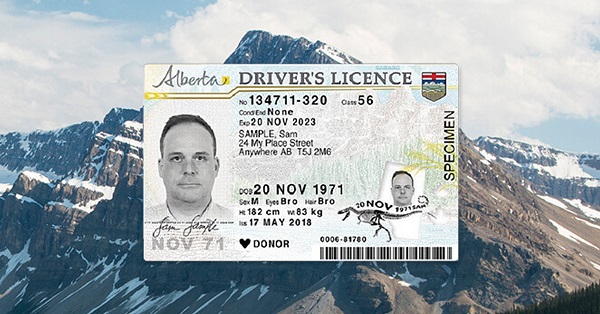Economy
Here’s how First Nations can access a reliable source of revenue
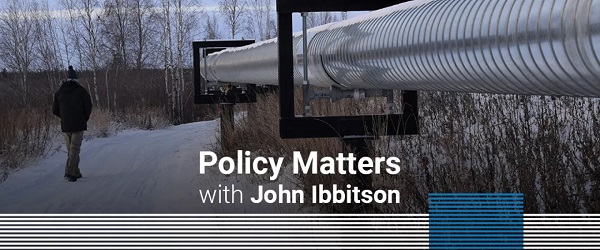
From the Fraser Institute
According to Pierre Poilievre, a Conservative government would permit First Nations to directly receive tax revenues from resource development on their ancestral territories. Political leaders of all parties should commit to such direct taxation. Because time is short.
Faced with the prospect of tariffs and other hostile American actions, Canada must build new energy infrastructure, mine critical minerals and diversify trade.
First Nations participation is critical to these plans. But too often, proposed infrastructure and resource projects on their territories become mired in lengthy negotiations that benefit only bureaucrats and lawyers. The First Nations Resource Charge (FNRC), a brainchild of the First Nations Tax Commission, could help cut through some of that red tape.
Currently, First Nations, the federal government and businesses negotiate agreements through a variety of mechanisms that establish the financial, environmental and cultural terms for a proposed development. As part of any agreement, Ottawa collects tax revenue from the project, then remits a portion of that revenue to the First Nation. The process is bureaucratic, time-consuming and paternalistic.
Under one version of the proposed charge, the First Nation would directly collect a portion of the federal corporate tax from the developer. The federal government, in turn, would issue the corporation an equivalent tax credit.
In effect, Ottawa would transfer tax points to First Nations.
“The Resource Charge doesn’t mean we won’t say no to bad projects where the costs to us are too high,” said Chief Darren Blaney of B.C’s Homalco First Nation, when the Conservatives first laid out the proposal last year. “It could mean, however, that good projects happen faster. This is what we all want.”
Poilievre referenced the proposed tax transfer in his Feb. 15 rally when he vowed to remove regulatory obstacles to fast-track resource development projects.
“We will incentivize Indigenous leaders to support these projects by letting companies pay a share of their federal corporate taxes to local First Nations,” he declared. “I want the First Nations people of Canada to be the richest people in the world.”
The First Nations Tax Commission first came up with the idea. Poilievre’s federal Conservatives are the first political party to embrace it. But there’s no reason why support for resource charges could not be bipartisan.
Mark Carney, the frontrunning candidate to succeed Justin Trudeau as Liberal Leader and prime minister, has vowed to use “all of the powers of the federal government… to accelerate the major projects that we need.” Supporting the FNRC would further that goal.
That said, resistance has already emerged.
“Most Indigenous leaders would see right through (what Poilievre said) because we’ve been around that corner a few times,” Dawn Martin-Hill, professor emeritus of Indigenous Studies at McMaster University, told the Canadian Press. “Selling your soul to have what other Canadians have, which is access to clean drinking water coming out of your tap, is highly problematic.”
But Prof. Martin-Hill inadvertently makes the case for the FNRC. Municipal governments raise funds by taxing the property of individuals and businesses and using the revenue to, among other things, provide clean drinking water. A First Nation that taxed a business operating on its territory, and used the revenue to provide clean drinking water for people on reserve, would simply be doing what governments are supposed to do.
Existing agreements, though cumbersome, have brought major new revenues to some reserves. The FNRC could increase revenues and First Nations autonomy.
Given the complexities of the tax code, and the limited administrative capacity of some First Nations, some agreements might see the federal government continuing to collect taxes and then remitting the First Nation’s portion to that government. The goal would be to ensure that revenues streams are transparent, predictable and support the greatest possible autonomy for each First Nation.
Any government committed to implementing the FNRC should convene a working group of First Nations leaders, private-sector executives and government officials to work out a framework agreement.
If the Conservatives win the next election, the working group could be part of a task force on tax reform that Poilievre said he intends to establish.
The FNRC would be voluntary. Communities could opt in or opt out. Provincial governments might also participate, sharing a portion of their taxes with First Nations.
If it works, a First Nations Resource Charge could speed the approval of lumber, mining, pipelines and other resource-related projects on the traditional lands of First Nations. It could provide reserves with stable and autonomous funding.
It’s an idea worth trying, regardless of which party forms the next government.
Agriculture
Ottawa’s EV Gamble Just Cost Canola Farmers Billions
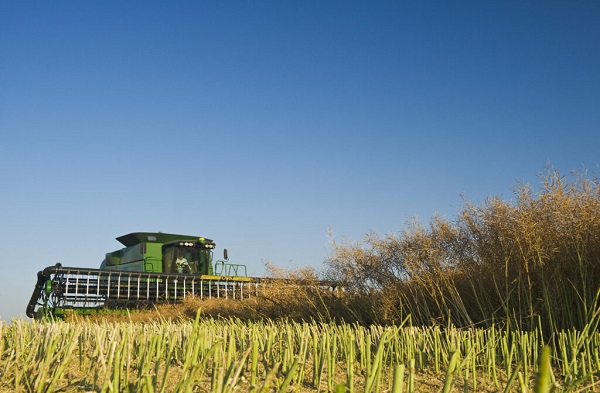
From the Frontier Centre for Public Policy
By Conrad Eder
Ottawa’s EV subsidies have backfired. Western Canada’s canola farmers are the latest victims of misguided government industrial policy
Economic policy is more like gardening than engineering. You can shovel all the money you want into trying to grow coconuts in a Canadian winter, but you’ll achieve far better results—and feed many more people—by planting potatoes in the spring and letting nature run its course.
For Canada, that means embracing policies that create fertile ground for all businesses to compete, innovate, and serve consumers. Ottawa, unfortunately, prefers to play God with the weather. What began as economic tinkering has triggered a cascade of interventions now devastating Canada’s canola industry.
Rather than letting the market determine Canada’s strengths, federal and provincial politicians decided they knew better, wagering $52.5 billion to lure EV and battery manufacturers to Canada. Massive public subsidies were placed on a handful of firms and technologies.
The Parliamentary Budget Officer delivered a sobering assessment of this boondoggle: it could take decades for taxpayers to break even on these subsidies—and only if nothing goes sideways.
Well, you know what they say about best-laid plans.
After committing billions, Ottawa faced an awkward truth: Chinese manufacturers were eating our lunch, offering EVs at lower prices, thanks in part to their own subsidies. Instead of reversing course, Ottawa hit the panic button and slapped a 100 per cent tariff on Chinese EVs.
Let’s be clear: this wasn’t about national security or consumer protection. It was about salvaging one of the largest industrial bets in Canadian history.
Yes, some sectors require targeted oversight to protect privacy and safety. EVs aren’t one of them. Their risks can be managed with targeted regulations and technical safeguards. But the tariffs do real damage by blocking affordable EVs and denying Canadians the right to judge for themselves.
Predictably, China didn’t take the tariffs lying down. In March, Beijing slapped 100 per cent duties on Canadian canola oil. In August, it hit canola seed with 75.8 per cent tariffs, effectively shutting out Canadian farmers from a $4.9-billion market.
Ninety-nine per cent of canola fields are in Western Canada. Canola is Canada’s top crop export, supporting tens of thousands of Prairie jobs and generating over $43 billion annually.
Another trade war, another lose-lose. Canadians pay more for EVs. Chinese consumers pay more for food.
And now, predictably, agricultural lobbyists are seeking Ottawa’s help. The government—having started the fire—has responded with $370 million in biofuel incentives and expanded financial support for canola producers. More subsidies. More distortion. Another Band-Aid for another self-inflicted wound.
Ironically, Canada’s farm sector already receives substantial government support. Now it’s receiving even more just to survive Ottawa’s protection of a separate subsidized industry. That’s the trouble with industrial policy: helping one sector often means hurting another. And taxpayers get the privilege of funding both.
There’s a better way forward: it doesn’t involve doubling down on mistakes. The solution is to stop the engineering and let the economy breathe. Lower taxes. Fewer regulations. Neutral infrastructure investment. These create the conditions for businesses to rise or fall on merit. That’s how innovation flourishes: through competition, not cabinet-level favouritism.
It’s not hard to follow the dominoes. EV subsidies triggered Chinese tariffs. Tariffs triggered canola retaliation. Canola retaliation now triggers demands for bailouts.
One attempt to pick winners has manufactured a long list of losers.
Had Ottawa stuck with free-trade principles, Canadians could’ve had more affordable EVs, taxpayers would’ve saved billions, and canola farmers would still have access to a vital export market.
Instead, we get a chain reaction of policy “fixes,” each one compensating for the damage done by the last—each one digging the hole deeper.
When governments try to engineer economic outcomes, citizens foot the bill. The real lesson? Governments are great at creating problems. Markets are better at solving them.
If Canada wants a prosperous economic future, it must stop betting the farm on political hunches and let competitive markets do the cultivating.
Conrad Eder is a policy analyst at the Frontier Centre for Public Policy.
Business
Energy leaders send this letter urging Prime Minister Mark Carney to unlock Canada’s resources
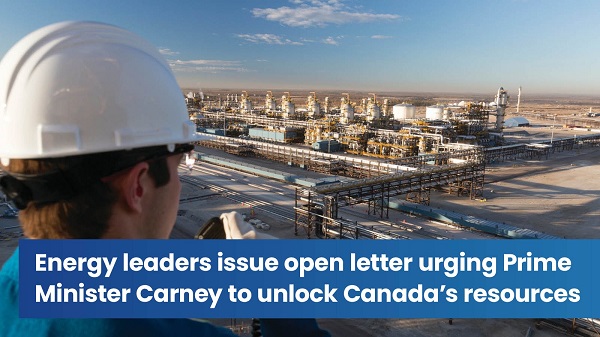
An Open Letter to the Prime Minister of Canada
The CEOs of Canada’s largest energy companies, including Canadian Natural Resources, Cenovus, Suncor, Imperial Oil and many more, have issued a new “Build Canada Now” letter to Prime Minister Carney. They are calling for Ottawa to repeal the production cap, scrap the tanker ban, simplify regulations and shorten project approvals so Alberta’s energy sector can create jobs, attract investment and help Canada become a true global energy superpower.
September 15, 2025
The Rt. Hon. Mark Carney, PC, MP
Prime Minister of Canada
Dear Prime Minister Carney,
Six months have passed since the first “Build Canada Now” letter was sent to you and the leaders of Canada’s other political parties outlining an action plan to unlock Canada’s world class oil and natural gas resources to strengthen Canada’s economic sovereignty, resilience and prosperity. After the election, we followed up with a second letter expressing our support for our shared vision of Canada becoming an energy superpower, one that harnesses both conventional and clean energy resources. Since then, we have seen progress but it is insufficient to stimulate the investment and growth required to make this vision a reality.
Thank you for leading the positive change in tone from the Federal Government in terms of the importance of economic development, including expanded investments in conventional energy. The launch of the new Major Projects Office, Indigenous Advisory Council, the initial list of projects of national significance, and the announcement that it will begin work in support of Pathways Plus are critical steps in the right direction. We appreciate the progress the Federal Government has made in these areas.
However, Canada still lacks the clear, competitive and durable fiscal and regulatory policies required to achieve the so-called “Grand Bargain”. That bargain being significant emissions reductions, expanded market access and material upstream production growth. Achieving these three inter-related outcomes goes beyond progressing select major projects but rather includes a multitude of other projects and related investments. Consequently, we reiterate our call to work together to make the policy changes required for this to happen.
Our call to action is urgent, with persistent indicators that the Canadian economy is moving in the wrong direction. The need to improve productivity and create jobs requires swift and decisive action. Canada is blessed with an enviable abundance of oil and natural gas resources and has the expertise to develop them in a manner consistent with environmental responsibility, social values, and working with Indigenous groups for the benefit of Canada and Canadians. As leaders of this sector, we have consistently advocated for the changes required to unwind the past decade of increasing policy complexity and uncertainty that led to delayed investments, lost opportunities and a competitive disadvantage on the global energy stage.
Given your background, you understand that the private sector and public markets require clarity and certainty to make the long-term investments necessary to realizing this sector’s potential, in turn creating thousands of high-paying jobs and significantly strengthening Canada’s economy.
Making the changes expressed in the earlier Build Canada Now letters are necessary to send clear signals that Canada is open for business. To reiterate, we believe that your government must focus on the following:
- Significantly simplify regulations. The Federal Impact Assessment Act and West Coast tanker ban are impeding development and need to be overhauled and repealed, respectively. Existing processes are complex, unpredictable, subjective, and excessively long. Processes need to be clarified and simplified, and decisions must withstand judicial review.
- Shorten timelines for project approvals. The Federal Government needs to dramatically reduce regulatory timelines to approve all projects within months, not years, of application. This is required to restore investor confidence and once again attract capital to Canada. Clarity on provincial versus federal jurisdiction related to project approvals is also required and needs to be respected.
- Commit to grow production, not limit it. The Federal Government’s unlegislated cap on emissions must be eliminated to allow the sector to grow and achieve its potential for the benefit of Canada and Canadians. The “production cap” creates uncertainty, is redundant, will result in production cuts, and stifles investment.
- Fiscal framework that attracts investment. The Federal carbon levy on large emitters is not globally cost competitive and should be repealed allowing provinces to set regulations. The Federal Government can lead cooperation across jurisdictions, protecting domestic and international competitiveness. Industry needs clear, competitive, and durable fiscal frameworks, including associated with carbon and overall taxation, to secure capital and incentivize investment.
- Incent Indigenous investment opportunities. The Federal Government needs to provide Indigenous loan guarantees at scale so industry can create ownership opportunities to increase prosperity and ensure Indigenous communities benefit from resource development.
As you have clearly stated, our country needs to move from “uncertainty to prosperity”. There needs to be tangible change to make this happen, and without clear and urgent action we risk missing a generational opportunity to capture the potential before Canada now.
As Parliament resumes for the Fall sitting, the energy industry remains committed to working with you, your cabinet, and the provinces on an urgent basis to achieve the energy sector’s potential for the good of Canada. Together, Canada can become the global energy superpower we all envision. We look forward to your response.
Sincerely,
Original signatories

Brandon Anderson
President & CEO
NorthRiver Midstream Inc

Doug Bartole
President & CEO
InPlay Oil Corp.

Robert Broen
President & CEO
Athabasca Oil Corporation

Scott Burrows
President and Chief Executive Officer
Pembina Pipeline Corp.

Chris Carlsen
President & COO
Birchcliff Energy Ltd.

Brad W. Corson
Chairman, President and Chief Executive Officer
Imperial Oil Ltd.

N. Murray Edwards
Executive Chairman
Canadian Natural Resources Limited

Darlene Gates
President and Chief Executive Officer
MEG Energy Corp.

Paul Hawksworth
President and Chief Executive Officer
Inter Pipeline Ltd.

Tyson Huska
President & CEO
Longshore Resources Ltd.

Mike Lawford
President & CEO
NuVista Energy Ltd.

Chris Mazerolle
President
Chevron Canada Resources

Nicholas McKenna
President
ConocoPhillips Canada

Paul Myers
President
Pacific Canbriam Energy Limited

François Poirier
President and Chief Executive Officer
TC Energy Corp.

Susan Riddell Rose
President & CEO
Rubellite Energy Corp.

Don Simmons
President & CEO
Hemisphere Energy Corporation

Adam Waterous
Executive Chairman, Board of Directors
Strathcona Resources Ltd.

Richard Wyman
President
Chance Oil and Gas Limited

Terry Anderson
President and Chief Executive Officer
ARC Resources Ltd.

Michael Binnion
President & CEO
Questerre Energy Corporation

Craig Bryksa
President and Chief Executive Officer
Veren Inc.

David J. Burton
President & CEO
Lycos Energy Inc.

Paul Colborne
President & CEO
Surge Energy Inc.

Greg Ebel
President and Chief Executive Officer
Enbridge Inc.

Grant Fagerheim
President and Chief Executive Officer
Whitecap Resources Inc.

Bryan Gould
Founder & CEO
Aspenleaf Energy Limited

Philip B. Hodge
President & CEO
Pine Cliff Energy Ltd.

Rich Kruger
President and Chief Executive Officer
Suncor Energy Inc.

Byron Lutes
President
Mancal Energy Inc.

Brendan McCracken
President & CEO
Ovintiv Canada ULC

Jon McKenzie
President and Chief Executive Officer
Cenovus Energy Inc.

Curtis Philippon
President & CEO
Gibson Energy

Mike Rose
President and Chief Executive Officer
Tourmaline Oil Corp.

Brian Schmidt
President & CEO
Tamarack Valley Energy Ltd.

David Spyker
President & CEO
Freehold Royalties Ltd.

Bevin Wirzba
President and Chief Executive Officer
South Bow Corp.

Vern Yu
President & Chief Executive Officer
AltaGas
Additional signatories



-
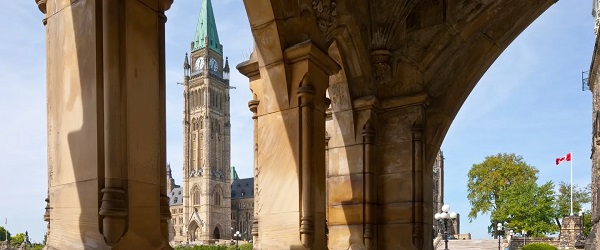
 Business2 days ago
Business2 days agoCarney’s ‘major projects’ list no cause for celebration
-

 Business2 days ago
Business2 days agoGlobal elites insisting on digital currency to phase out cash
-

 Business2 days ago
Business2 days agoRed tape is killing Canadian housing affordability
-

 Health2 days ago
Health2 days agoMAiD should not be a response to depression
-

 Artificial Intelligence2 days ago
Artificial Intelligence2 days agoUK Police Chief Hails Facial Recognition, Outlines Drone and AI Policing Plans
-

 Business1 day ago
Business1 day agoOttawa’s so-called ‘Clean Fuel Standards’ cause more harm than good
-

 Business1 day ago
Business1 day agoThe Truth Is Buried Under Sechelt’s Unproven Graves
-

 International2 days ago
International2 days agoFrance records more deaths than births for the first time in 80 years




